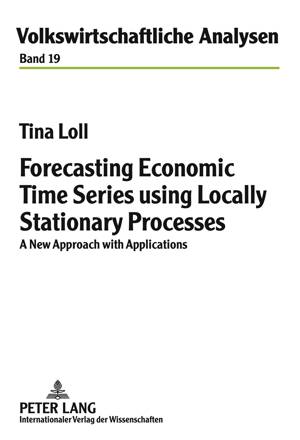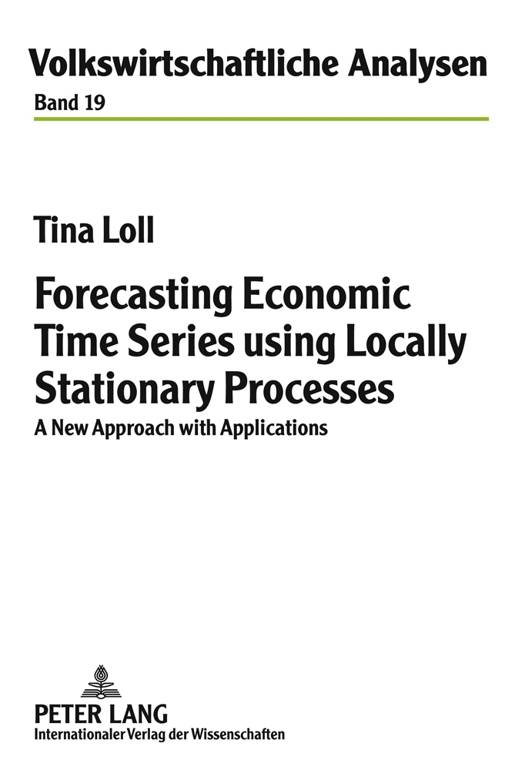
- Afhalen na 1 uur in een winkel met voorraad
- Gratis thuislevering in België vanaf € 30
- Ruim aanbod met 7 miljoen producten
- Afhalen na 1 uur in een winkel met voorraad
- Gratis thuislevering in België vanaf € 30
- Ruim aanbod met 7 miljoen producten
Zoeken
Forecasting Economic Time Series Using Locally Stationary Processes
A New Approach with Applications
Tina Loll
€ 56,95
+ 113 punten
Omschrijving
Stationarity has always played an important part in forecasting theory. However, some economic time series show time-varying autocovariances. The question arises whether forecasts can be improved using models that capture such a time-varying second-order structure. One possibility is given by autoregressive models with time-varying parameters. The author focuses on the development of a forecasting procedure for these processes and compares this approach to classical forecasting methods by means of Monte Carlo simulations. An evaluation of the proposed procedure is given by its application to futures prices and the Dow Jones index. The approach turns out to be superior to the classical methods if the sample sizes are large and the forecasting horizons do not range too far into the future.
Specificaties
Betrokkenen
- Auteur(s):
- Uitgeverij:
Inhoud
- Aantal bladzijden:
- 138
- Taal:
- Engels
- Reeks:
- Reeksnummer:
- nr. 19
Eigenschappen
- Productcode (EAN):
- 9783631621875
- Verschijningsdatum:
- 19/01/2012
- Uitvoering:
- Hardcover
- Formaat:
- Genaaid
- Afmetingen:
- 148 mm x 210 mm
- Gewicht:
- 289 g

Alleen bij Standaard Boekhandel
+ 113 punten op je klantenkaart van Standaard Boekhandel
Beoordelingen
We publiceren alleen reviews die voldoen aan de voorwaarden voor reviews. Bekijk onze voorwaarden voor reviews.







